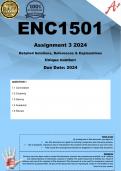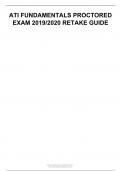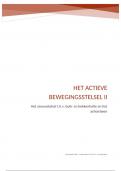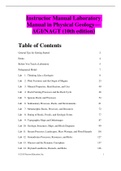Exam (elaborations)
ENC1501 Assignment 3 (COMPLETE ANSWERS) 2024
- Institution
- University Of South Africa (Unisa)
ENC1501 Assignment 3 (COMPLETE ANSWERS) 2024 ;100% TRUSTED workings, explanations and solutions. for assistance Whats-App.......0.6.7..1.7.1..1.7.3.9......... Question 1 Complete the following sentences by filling in the correct word or concept. 1.1 __________is the meaning connected to a word f...
[Show more]







